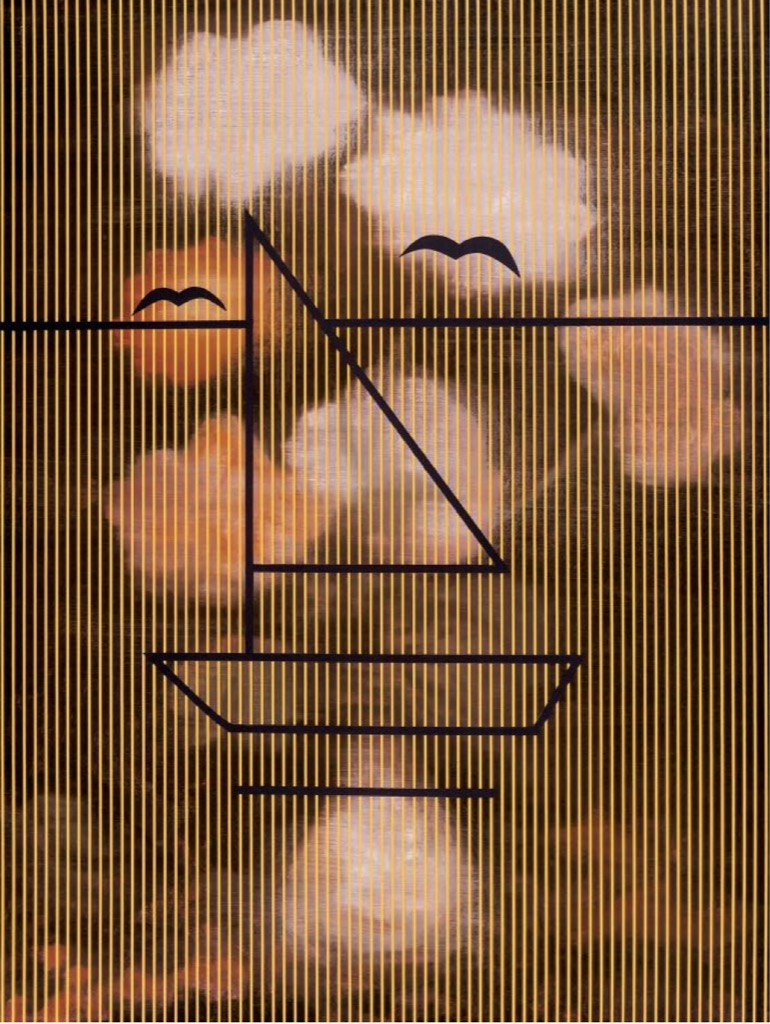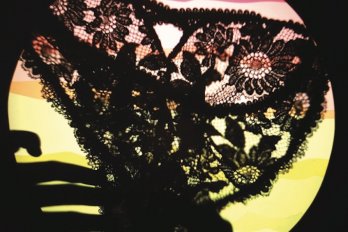Climbing out of Shannon, our big jet lays its shadow over the Aran Islands and I spy a pretty white beach I’ve not stepped on since 1981. A thought strikes me: how many stunning sandy strands I’ve stumbled upon in Ireland. Speak the word Ireland and people think of many pleasant things: The Edge’s stellar toque collection. Some old bollix pretending he drank with Brendan Behan. Romanian stag parties Euro-vomiting trendily over the rainy cobbles of Temple Bar.
A sunny, sandy beach replete with seals and porpoises is not the first image that springs to mind. Yet Ireland’s jagged coastline hides thousands of sublime strands, easy to journey to and, best of all for us anti-social types, blessedly free of the madding crowd. I have a few favourites, though I’d rather no one went to them but me.
Dollymount Strand is a fine Blue Flag swimming beach on North Bull Island, right in Dublin Bay. The island is a giant sandbar created by the tidal scour from nineteenth-century seawalls built on either side of the mouth of the River Liffey by the infamous Captain William Bligh.
I walk down to Dollymount the morning after my birthday celebrations at Harry Byrne’s pub, where a few too many jars were tippled. To stride a mile or two of flat sand seems an excellent way to clear my addled cranium and view the harbour traffic, the twin twinkling smokestacks of Poolbeg Point, and the hills of Howth.
Penitent, I stroll half the day, the salt air a tonic, only to find myself in a pub again, where my cousin tells me of a Dublin policeman he knows, a man not happy in his home, a man who takes shift after shift to avoid going home to his wife and children, who dislike him. One day this policeman’s wife asks him to pick up her sister at Dublin Airport. He does so. The sister-in-law is thrilled to be home, her first time back in ould Ireland since emigrating.
Now before we go anywhere, she says excitedly, I want to walk barefoot on Dollymount Strand. Her first steps back on the Emerald Isle. Your man glumly drives her to Dollymount and off she tears, trotting down the flat beach, happy as a clam.
He sits in the car, less happy than a clam, but then doesn’t he discover her duty-free bag. He drains one or two of his sister-in-law’s fine duty-free bottles and passes out in the driver’s seat. The sister-in-law returns to the car but she cannot rouse him, cannot even budge him, and she has to walk off the beach and uphill into Raheny to phone her sister. The sister-in-law’s first walk back in Ireland is a wee bit longer than she counted on; the policeman starts working even more overtime.
Howth’s hills and lighthouse and dramatic cliffs are visible from the beach at Dollymount. Howth has a Mediterranean look—palm trees and wild pastel walls, ruined abbey stones, and a quarry hidden in the rocks looming over the town. The poet W.B. Yeats lived for a time in Howth, and parts of J.P. Donleavy’s raucous novel The Ginger Man are set here.
Under Howth’s Martello tower I sit on a cliffside beach getting sunburnt. A dog appears magically, no owner visible. The dog stares at me, trying to communicate. I pick up a stick.
No, it says to me, a stick won’t do. I toss a small stone.
Yes! It bounces gleefully after the stone and brings it back. I feel guilty about the dog’s teeth, but we are both rather happy with our wholesome pastime, and when I climb the steps up the cliff it is with some regret.
Howth’s huge stone breakwater pier protects a marina where you can listen to buskers imitate Miles Davis badly or catch a small boat out to Ireland’s Eye, an island bird sanctuary. Erskine Childers and the Irish Volunteers smuggled rifles into Howth Harbour in July 1914—the weapons wielded in the doomed Easter Rising of 1916. Childers was later executed, not by the British but by former friends, one of many such perverse casualties during the Irish Civil War. Now the local fishboat traffic leans more to drug-running; the Celtic Tiger needs its pharmaceuticals.
Members of U2 own sumptuous homes around Howth. In the 1980s, my cousin and some of his mates met at the Summit pub every Thursday night for pints. One of the mates was Larry, U2’s drummer. Before the band’s 2005 concert in Dublin, my cousin was handed a free pass to a vip box and word was to not eat or drink before the show; all would be provided. Larry the drummer doesn’t forget his old pals from the Summit.
I love Howth and Dublin, but it is my belief that if you want to know the real Ireland (of course there is no real Ireland), then you must go west, push beyond The Pale. Dublin is overrun with Eurotrash, gridlocked bmws, and Botox addicts.
Way down in the southwest is Dingle Peninsula, my favourite corner of Ireland. You can’t get much farther out in the boonies. Swim due west from Dingle and you’ll hit Newfoundland. In fact Newfoundland’s trash sometimes drifts to Irish shores.
Inch is a small village on Dingle Bay. Grassy dunes rise behind you, and surf and open waters stretch west toward the Atlantic. Mountains and cliffs line the bay like a fjord, a primal misty landscape at times, mountains and sea and sky in those infinite washes of blue. People have lived on Inch’s stupendous beach—several kilometres long and flat as a gym floor—for thousands of years. Maybe Bronze Age hepcats surfed these breaks and combers.
I walk miles to the very end of this sandy hook and after the first stretch see hardly another footprint, no one but me tootling on my harmonica. No pier, no ferries, no Miami Vice cigarette boats, no Sea-Doos roaring and bucking, no traffic jams, no horns, no squealing brakes, no exhaust, no boom boxes, no cigar smokers, no emperors of ice cream. Inch belongs to a different, calmer world.
A spooky scene finds me down my beach: a pair of socks and two boots arranged neatly, facing the sea. A swimmer A lonely suicide Not a soul about. Stare out at the waves and no one there, no surfers. Wind from the sea fluting in my ears, I can hear sand move in the wind. A big dune behind me, a skinny desert jutting into sea; I expect jeeps out of The Rat Patrol or Michael Ondaatje. Empty socks and boots wait patiently. Where did that human go
This human makes his way to Foley’s, a roadside pub, for a fine evening. The bartender is named Martina, and Martina is married to Martin. I am travelling with my brother Martin; we just saw my cousin Martin in Dublin; my first son is named Martin; my favourite uncle was Marty, my great-grandfather Martin. We drink to that, we are welcome here, we have Martin-cred.Two pub locals, hearing we are Canucks, tell us of their love of The Band and especially the sad voice of the late Rick Danko.
And Richard Manuel’s sad voice!
And Levon Helm!
One man is an exile from Dublin now sheep-farming in the hills, independent, bought land when it was cheap. The second patron is an exile from Cork with a soft accent. All of us stand outside, talking and laughing with black pints. Dead bodies lie in the graveyard across the road, cattle wander dim fields, and there are no hurtling lorries on the road at night. This tiny village gone still under the dark cliff and that amazing beach out there in winds off the Atlantic, the wash of the waves miles wide in the darkness.
After closing time Martina closes the wooden shutters and front door to make the place look closed, but she lets us stay on and on, then finally pours us one more round and speaks her goodbyes. We will stay in touch, return. She says the owner is in the back, but we never see him; we have a perfect Irish pub to ourselves. I want to move here, change my life, be one of the exiles.
The parlous roads leading in and out are narrower than my sofa and peopled with lunatic lorry drivers. In one pub a Minnesota man vents his frustration at the dangerous cliffhanger road: why don’t they four-lane it!
No. That’d wreck it all. I like it exactly as is.
From a wharf in Dingle’s harbour I step on a boat, the Peig Sayers, a twelve-passenger rib that will speed me to Great Blasket Island. As we move out to open water, passengers sun themselves on the back of the boat and search for Fungie, Dingle’s famed bottlenose dolphin. Fungie does not disappoint, leaping up and surfing our wake as if on command. Inside a man asks the skipper about the engines.
This is less than half speed.
Can you open it up
If you tell them in the back to come inside I will.
The skipper wants passengers up front so the boat can level out. He opens up the roaring engines, walls of noise, and we pound over the chop. How the old islanders would have envied this howling horsepower and thrust, especially compared with the kayak-like currachs they used to balance themselves in, crafts made of skin and tar. With five hundred horses a man would be king of the seas.
Only five kilometres of water to cross, but the Blasket Islands are cut off for long periods; you can’t land if the weather doesn’t want to co-operate. I know. I tried many times over three decades, sometimes wondering would I ever make the passage across. These are deadly churning waters. A warship from the Spanish Armada foundered here in September 1588. Drifting in Blasket Sound, its wooden hull hit the submerged peak of Stromboli reef, tore open, and sank. One crew member survived, floating naked on a plank to dry land, where he was tortured and probably killed.
In the Peig Sayers we speed past rust-orange skeleton sections of a freighter, its remains hung up like weird art, giant iron sculptures wedged high into gaps in the steep cliffs of the mainland. Far above our little boat green fields tilt down, crooked caps atop the precipices.
Sheep ever fall down I ask the skipper.
They do, and if they live they starve to death on the rocks.
Gannets drive and smash into the sea as we approach Great Blasket Island. Rough water is almost a norm here, but today the beach is idyllic, with its white sand and aquamarine shallows and porpoises and seals cavorting around us.
In the bay we tie up and transfer to a Zodiac, but do not run up the flat beach; instead we tuck into a tiny inlet, surf flowing up and down the rocks. We leap onto greasy green rocks, get our purchase, and follow a zigzag path up the cliffs. Amazing that this slippery alcove, this vertical hallway, is where the islanders transferred everything they needed: turf, fish, bacon, seal oil, lumber, wool, bags of flour, casks, livestock—everything!
Over fifty years ago, the last elderly people still living here were evacuated and now the village is a ruin, deserted, cottages and stone foundations laid out in ghostly rows in a hillside bowl sheltered from the Atlantic. Roofs are gone from many structures, their stones tumbling over in the weather, yet a few houses are perfectly maintained, some kept by local families and some sold to outsiders for as little as a bottle of brandy.
In which cottage did J.M. Synge, author of The Playboy of the Western World, sleep and eavesdrop for material and have his feet washed by his host’s daughter No one around that I can ask. All this hidden history, warm hearths and heartbeats, fiddles and outdoor dances. The Blaskets are a melancholy spot, yet there is sheer pleasure in being here, alive in this brilliant light and views of the radiant sea and purple peaks on the peninsulas and the Skellig Islands there to the south as if made of light and glass—spooky pale-blue pyramids lifting out of the silver sea.
I climb to the top of the island, a narrow hogback of spongy heather and pale stone. There are pink wildflowers and big brown hares galloping away from me toward precipices, such beautiful light, and stunning views every way I turn my head. I look straight down at seabirds, can almost peer down chimneys in the deserted village, and I spy a naked couple on the beach far below, a seal playing with them in the shallows. Waves skim in and retreat and the wet flat sand glows like a floor of polished marble, mirroring cliffs around the beach. Algerian pirates abducted local women in these parts in the 1600s. I imagine the terrified women running the steep hillside, barefoot, hair in their faces, nowhere to hide, not a bush or tree on the island. What a world.
This sunburnt season we race dolphins in our Zodiac, and a naked couple splash in the water. J.M. Synge wrote of these strange beautiful shores, “One wonders in these places why anyone is left in Dublin, or London, or Paris, when it would be better, one would think, to live in a tent or hut with this magnificent sea and sky, and to breathe this wonderful air, which is like wine in one’s teeth.”





